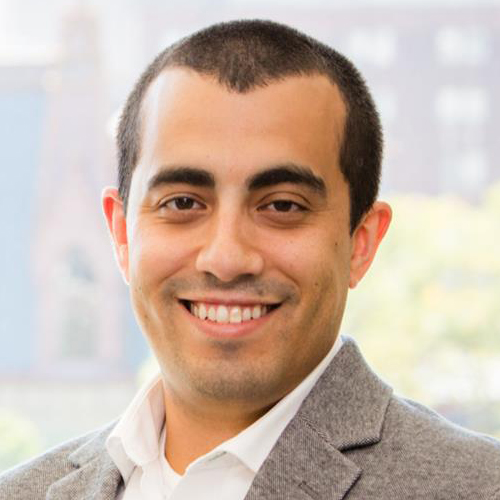The connection between laboratory scientists and data analysts must grow stronger to accelerate advances that improve human health, and a faculty member at the University of Colorado School of Medicine has proposed a better way to promote these collaborations.
Gregory P. Way, PhD, assistant professor of biochemistry and molecular genetics, is the lead author of “A field guide to cultivating computational biology,” published this fall in the journal PLOS Biology. In the article, Way and his co-authors, who represent 14 institutions in six countries, offer 10 calls to action to cultivate computational biology.
The increasing power of computation over the past 30 years has spurred the growth of computational biology as a mature scientific field. At the same time, though, existing environments do not provide appropriate incentives to encourage full-fledged collaborations between the bench scientists and the computing crews. In some cases, the status quo fails to recognize the critical value of all contributions.
Mutual respect will lead to more collaboration
“A harmonious deep integration between biology and computer science requires action,” Way and colleagues write. “We outline 10 immediate calls to action in this article and aim our speech directly at individual scientists, institutions, funding agencies, and publishers in an attempt to shift perspectives and enable action toward accepting and embracing computational biology as a mature, necessary, and inevitable discipline.”
The article calls for mutual respect by each participant to value the unique contributions of all collaborators. “Computationalists do not like to be seen as ‘just’ running the numbers any more than biologists appreciate the perception that they are ‘just’ a pair of hands that produced the data,” he writes.
In addition to interpersonal cooperation, the article calls for larger structural and cultural changes at institutions that would recognize contributions to “team science” and help secure funding for computational work. Just as the work of a lab scientist is never done, the work of the computationalists should similarly be recognized as ongoing. Their work is never one and done. “As the project progresses,” Way and colleagues write, “collaborators must understand that data analysis is rarely turnkey: Optimal analysis requires iteration and engagement and can yield fruitful discovery and new questions to ask.”
Leveraging AI to make connections
Way’s article is published as the University of Colorado School of Medicine has launched a new Center for Health Artificial Intelligence, which promotes and strengthens the types of collaborations discussed in the article. One of Way’s co-authors on the article is Casey S. Greene, PhD, director of the Center for Health AI.
The Center for Health AI will build new capabilities on the Anschutz Medical Campus for advanced data analysis while complementing existing data and analysis centers of excellence including the Colorado Center for Personalized Medicine and the Center for Innovative Design and Analysis.
The 10 Calls to Action:
|
“Our goal is to develop techniques that advance research and practice using artificial intelligence as a bridge to reveal unexpected connections,” Greene says. “To do this in a way that promotes equity and improved care, we must develop approaches that are both predictive and interpretable, which will be key areas of focus for the center.”
School of Medicine Dean John J. Reilly, Jr., MD, has emphasized upgrading the quality of data analytics is a major priority of the School of Medicine.
“It does not make any sense to have made the investments in all these new technologies and new science on the campus and not be able to process the data with state-of-the-art techniques,” Reilly said. “We’re going to have to start recruiting people, both a workforce to meet the service needs as well as people who have the capacity to grow into thought leaders and developers in these fields, and that will be a primary focus for us in the years ahead.”
Way’s lab is recruiting PhD students, postdoctoral fellows, and image data specialists.
“With investment in the new Center for Health AI, CU Anschutz is stepping up to solve the complex health problems of today and beyond,” Way says. “We’re ready to lead ambitious, multi-disciplinary collaborations required for scientific progress and to train the next generation of scientists in our team-oriented environments.”




